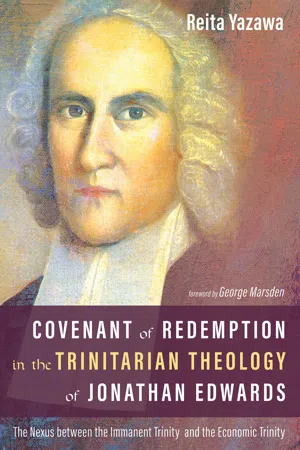![]()
1
Introduction
Criticism of the Immanent Trinity in Contemporary Theology
Present Status of the Problem
Karl Rahner once remarked: “We must be willing to admit that, should the doctrine of the Trinity have to be dropped as false, the major part of religious literature could well remain virtually unchanged.” Rahner lamented by this statement that despite preceding studies of the history of trinitarian theology, “Christians are, in their practical life, almost mere ‘monotheists.’”
To be sure, the latter half of the twentieth century and the beginning of the twenty-first century have seen a remarkable resurgence of the doctrine of the Trinity. Already in 1946, H. Richard Niebuhr predicted that the doctrine of the Trinity would be of central theological interest in the coming years. After identifying major developments of contemporary theology: efforts to recover and renew theological heritage, reconsideration of human nature and destiny in light of cultural crises of the day, and ecumenical endeavors, Niebuhr remarked: “One Christian doctrine which has importance in all three respects and which may therefore be moved nearer the center of interest in coming years of theological discussion is the doctrine of the Trinity.”
As he predicted, varieties of studies on the doctrine of the Trinity ensued. In this so called “Trinitarian Renaissance,” one of the major characteristics of contemporary trinitarian theology is, as if in response to the Rahner’s challenge, the exploration of practical implications of the doctrine of the Trinity. For example, A. H. Mathias Zahniser sees trinitarian thinking as “a foundation for mission.” Looking at the Trinity as “a model of how God carries out his mission in the world” helps believers to participate in God’s mission effectively. Michael Jinkins finds the triune God as the “theological ground of the church’s unity.” The triune God as unity in diversity provides the foundation for ecclesiology. Daniel L. Migliore explores political and economic implications of the doctrine of the Trinity.
In other words, the trinitarian faith patterns our social engagements. Miroslav Volf shares a similar point of view when he says: “A soteriology based on the indwelling of the Crucified by the Spirit (Gal 2:19–20) grounds a social practice modeled on God’s passion for the salvation of the world.” Mary Ann Donovan sees the doctrine of the Trinity as a guide for pastoral care, which she defines as follows: “It is to enable people to relate to one another as the Three Divine Persons do, and it is to assist people to give glory to God in public prayer and in their daily lives.”
In this way, scholars plumb the implication of the Trinity for theology of religions, ecclesiology, political theology, feminist theology, pastoral theology, process theology, or missiology. Behind these diverse approaches to the doctrine of the Trinity there often seems to be an assumption that the traditional doctrine of the Trinity has been abstract and speculative, detached from God’s economic work of redemption in history.
Traditional theology makes a distinction between the immanent Trinity and the economic Trinity. The immanent Trinity refers to God in himself, God’s being, or the inner-relatedness of God, separate and independent from the existence of the world. The economic Trinity refers to God’s relation to the world, God’s work in history and the world, or God’s being in relation to the world. Much of the recent discussions on the doctrine of the Trinity appears to assume that emphasizing the immanent Trinity results in a speculative formulation of the doctrine of the Trinity. Hence, the doctrine of the Trinity, many contemporary trinitarian theologians believe, became impractical, losing relevance for daily Christian life. They therefore attempt to reclaim the importance of the economic Trinity and reconsider the doctrine of the Trinity from God’s concrete work of redemption in Christ through the Holy Spirit. Through this process, they make efforts to recover a doctrine of the Trinity that is relevant to Christian life and practice.
For instance, Migliore stresses the economic Trinity as the starting point of theological appraisal.
By this, Migliore indicates that the immanent Trinity, if severed from God’s economic work of salvation in the world, becomes increasingly abstract and arbitrary. In a similar vein, Thomas F. Torrance emphasizes the Incarnation as God’s real self-communication by saying that “detached from God’s economic condescension and self-revelation in history, a doctrine of the Trinity is nothing but a speculative projection”
These modern trinitarian theologians therefore attempt to connect the doctrine of the Trinity with history, experience, practical life, or the economic trinitarian work of salvation. For example, Jürgen Moltmann sees the economic work of the triune God in this world as the history of God and articulates the doctrine of the Trinity inherently interwoven with the world.
